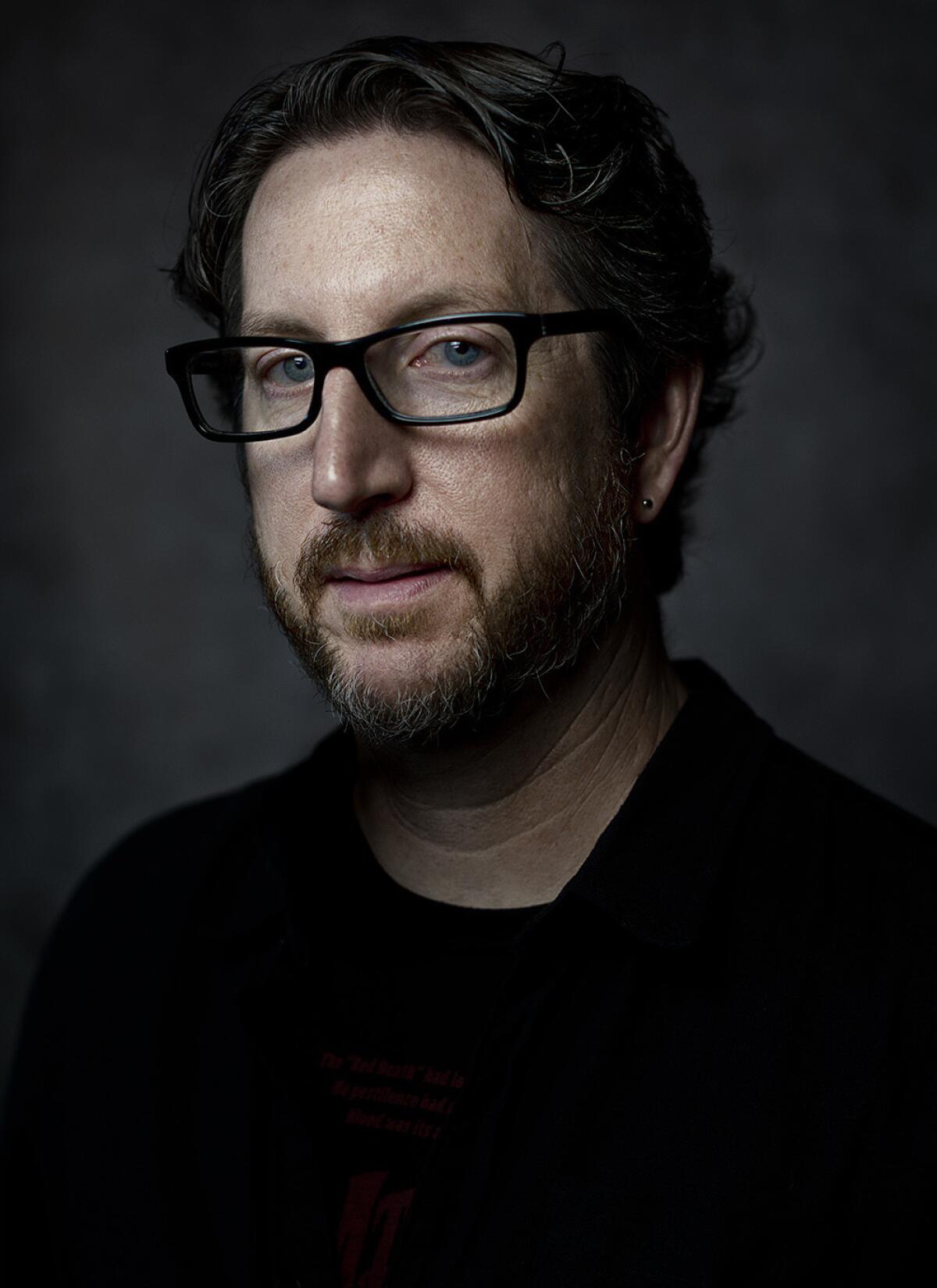Paul Tremblay’s supernatural storytelling balances terror with psychological insight
- Share via
Ghost story season is upon us: Those hoping for the perfect balance of terror and psychological insight that makes for the most frightening reading should flock to “Growing Things,” Paul Tremblay’s new story collection.
Tremblay’s bestselling novels “A Head Full of Ghosts,” “The Cabin at the End of the World” and “Disappearance at Devil’s Rock” all play with the traditions of supernatural writing — ghosts, unreliable narrators, folklore, urban legend — and the strongest tales in “Growing Things” continue this exploration of what the genre can do. The disintegration of family, particularly of a father who once formed its center, crops up in many of these stories. In the title work, two teenage sisters hole up in their house, trying to avoid a green apocalypse that began in the soybean fields of the Midwest. Their father has disappeared, but not before warning them: “Don’t answer the door for anyone! Don’t answer it! Knocking means the world is over!” It’s one of the collection’s more conventional pieces — you can see where it’s going from the outset — but the last two lines still resonate with a “The Lady or the Tiger?” urgency. (The late, great editor Gardner Dozois once said that something like 90% of a story’s impact comes from its last line. Tremblay is an expert at them.)
Other stories also stick to the more well-trodden side of the tracks. The meth-head narrator of “Swim Wants to Know If It’s Bad as Swim Thinks” recounts her final breakdown to her daughter. In “Our Town’s Monster,” a real estate agent’s disclaimers to a young couple include “There’s a monster in the swamp. It eats cats and dogs; small, unwanted children, you know the type, and the occasional beautiful woman.” The titular heist of “The Getaway” goes awry with deadly, and uncanny, consequences for its perpetrators. Here, the more conventional grisly tropes are enhanced by Tremblay’s moody evocation of a decaying Worcester, Mass, and the despairing blue-collar workers abandoned there when its factories closed.

Tremblay’s best work probes the nature of horror fiction and those who write it. “Something About Birds” soars into terrifying heights. Ben, a diehard horror lover, interviews William Wheatley, a retired author of weird fiction whose final story, “Something About Birds,” exerts a disturbing power over his interviewer. (Wheatley’s name invokes that of filmmaker Ben Wheatley, whose “A Field in England” remains a highwater mark in modern horror cinema.) As a macabre souvenir from his favorite writer upends Ben’s life, we’re reminded that, in horror as well as fairy tales, no gift comes without cost. The story’s last line made my hair stand on end.
Tremblay continues his deconstruction of the genre with “A Haunted House Is a Wheel Upon Which Some Are Broken,” in which a family’s dissolution is recounted as a choose-your-own-adventure story. “Notes From the Dog Walkers” begins as a comic epistolary tale, but the amusing daily missives from a trio of dog walkers take a darker turn as one of them, KB, grows unhinged by an obsession with the dog’s owner — a writer whose body of work and taste in books seem not dissimilar from Tremblay’s own. KB’s long digressions suggest s/he may be more than just an ardent reader of horror, and also provide some of the collection’s more perceptive insights on the genre. KB’s references to the fictional author as “Mr. Ambiguous Horror” slyly send up Tremblay’s own ambitious forays into experimental narratives, represented here by less successful stories that bear the fingerprints of Mark Danielewski’s “House of Leaves” and Dan Chaon’s “Ill Will.”
Two of the collection’s standouts again hew to more conventional forms. The brilliant “It Won’t Go Away” features another horror writer in extremis. “It’s Against the Law to Feed the Ducks” ventures into Shirley Jackson territory, as a family vacation turns apocalyptic, though with a surprising, and uncharacteristic, glimmer of hope at the end.
“Why horror?” KB asks the unnamed writer, and proceeds to answer the question.
“You’ll … say it’s because of the hope of horror and it’s because of the horror of hope. You will not elaborate or explain or expand. Neither of us will be entirely sure what you mean, but we’ll think you’re close to a truth, and what else can we ask for?”
::
Paul Tremblay
William Morrow: 333 pp., $25.99
Liz Hand’s 14th novel, “Curious Toys,” will be published this fall.
Sign up for our Book Club newsletter
Get the latest news, events and more from the Los Angeles Times Book Club, and help us get L.A. reading and talking.
You may occasionally receive promotional content from the Los Angeles Times.





